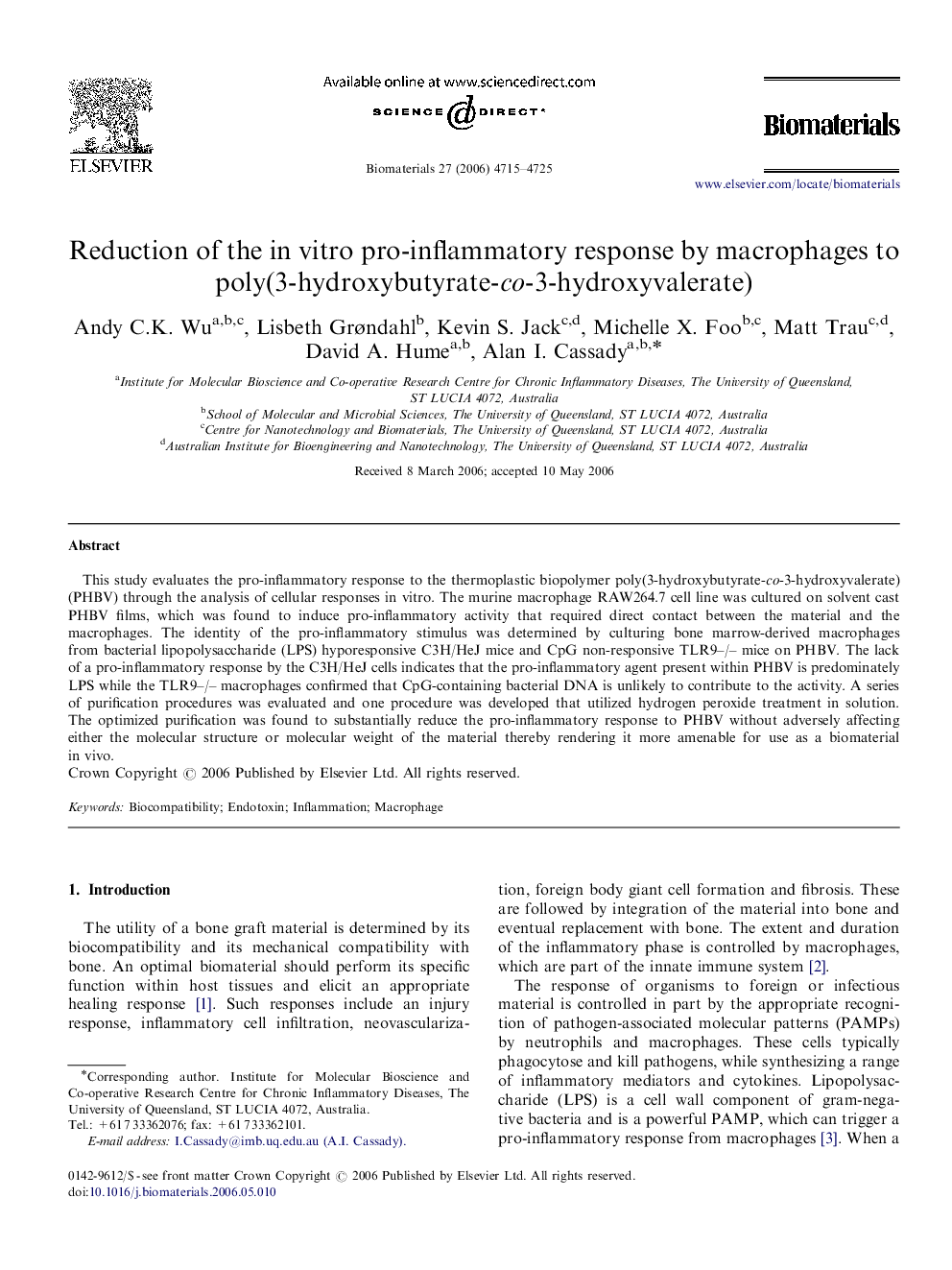| Article ID | Journal | Published Year | Pages | File Type |
|---|---|---|---|---|
| 11313 | Biomaterials | 2006 | 11 Pages |
This study evaluates the pro-inflammatory response to the thermoplastic biopolymer poly(3-hydroxybutyrate-co-3-hydroxyvalerate) (PHBV) through the analysis of cellular responses in vitro. The murine macrophage RAW264.7 cell line was cultured on solvent cast PHBV films, which was found to induce pro-inflammatory activity that required direct contact between the material and the macrophages. The identity of the pro-inflammatory stimulus was determined by culturing bone marrow-derived macrophages from bacterial lipopolysaccharide (LPS) hyporesponsive C3H/HeJ mice and CpG non-responsive TLR9–/– mice on PHBV. The lack of a pro-inflammatory response by the C3H/HeJ cells indicates that the pro-inflammatory agent present within PHBV is predominately LPS while the TLR9–/– macrophages confirmed that CpG-containing bacterial DNA is unlikely to contribute to the activity. A series of purification procedures was evaluated and one procedure was developed that utilized hydrogen peroxide treatment in solution. The optimized purification was found to substantially reduce the pro-inflammatory response to PHBV without adversely affecting either the molecular structure or molecular weight of the material thereby rendering it more amenable for use as a biomaterial in vivo.
